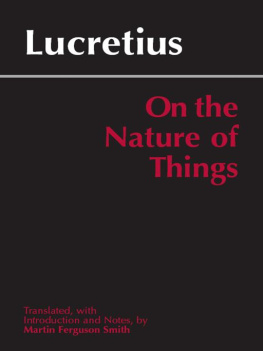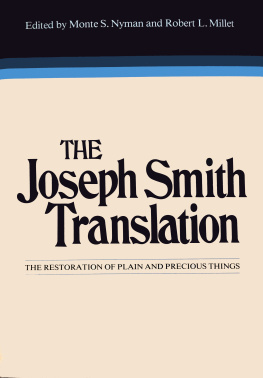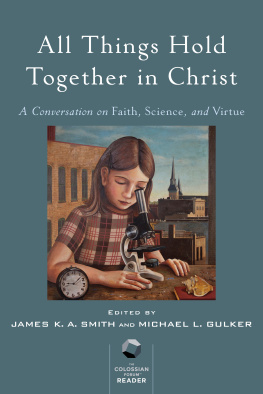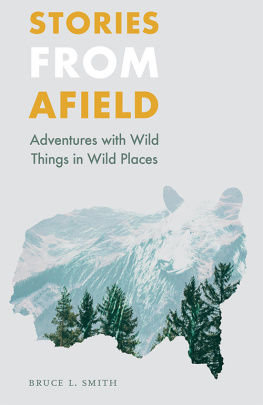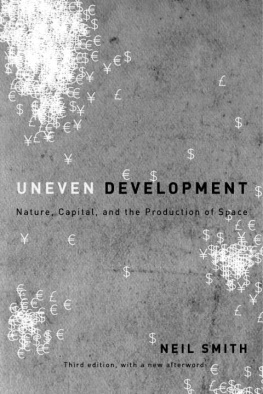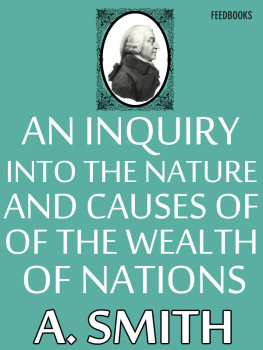Smith - On the Nature of Things
Here you can read online Smith - On the Nature of Things full text of the book (entire story) in english for free. Download pdf and epub, get meaning, cover and reviews about this ebook. year: 2011, publisher: Hackett Publishing Company, Inc., genre: Science. Description of the work, (preface) as well as reviews are available. Best literature library LitArk.com created for fans of good reading and offers a wide selection of genres:
Romance novel
Science fiction
Adventure
Detective
Science
History
Home and family
Prose
Art
Politics
Computer
Non-fiction
Religion
Business
Children
Humor
Choose a favorite category and find really read worthwhile books. Enjoy immersion in the world of imagination, feel the emotions of the characters or learn something new for yourself, make an fascinating discovery.
- Book:On the Nature of Things
- Author:
- Publisher:Hackett Publishing Company, Inc.
- Genre:
- Year:2011
- Rating:5 / 5
- Favourites:Add to favourites
- Your mark:
- 100
- 1
- 2
- 3
- 4
- 5
On the Nature of Things: summary, description and annotation
We offer to read an annotation, description, summary or preface (depends on what the author of the book "On the Nature of Things" wrote himself). If you haven't found the necessary information about the book — write in the comments, we will try to find it.
Smith: author's other books
Who wrote On the Nature of Things? Find out the surname, the name of the author of the book and a list of all author's works by series.
On the Nature of Things — read online for free the complete book (whole text) full work
Below is the text of the book, divided by pages. System saving the place of the last page read, allows you to conveniently read the book "On the Nature of Things" online for free, without having to search again every time where you left off. Put a bookmark, and you can go to the page where you finished reading at any time.
Font size:
Interval:
Bookmark:
ON THE NATURE OF THINGS
For my daughter, Lucinda, with love
carmina sublimis tunc sunt peritura Lucreti exitio terras cum dabit una dies.
The verses of sublime Lucretius are destined to perish only when a single day will consign the world to destruction.
Ovid Amores 1.15.2324
LUCRETIUS
ON THE NATURE OF THINGS
Translated, with Introduction and Notes,
by MARTIN FERGUSON SMITH
Hackett Publishing Company, Inc.
Indianapolis/Cambridge
Original translation and introduction copyright 1969 by Martin Ferguson Smith.
Revised translation and editorial apparatus copyright 2001 by Hackett Publishing Company, Inc.
All rights reserved
Printed in the United States of America
09 08 07 06 05 2 3 4 5 6 7
For further information, please address:
Hackett Publishing Company, Inc.
P.O. Box 44937
Indianapolis, IN 46244-0937
www.hackettpublishing.com
Cover design by Listenberger & Associates
Library of Congress Cataloging-in-Publication Data
Lucretius Carus, Titus.
[De rerum natura. English]
On the nature of things / Lucretius ; translated, with introduction and notes, by Martin Ferguson Smith.
p. cm.
Includes bibliographical references and index.
ISBN 0-87220-588-6 (cloth) ISBN 0-87220-587-8 (paper)
1. Didactic poetry, LatinTranslations into English. 2.
Philosophy, AncientPoetry. I. Smith, Martin Ferguson. II. Title.
PA6483.E5 S6 2001
187dc21 2001026403
ePub ISBN: 978-1-60384-779-7
CONTENTS
This translation, a product of my mid-twenties, was first published by Sphere in 1969, but has been out of print since 1972. I am grateful to Hackett for reissuing it in the autumn of my life.
The bulk of the translation has been left unchanged, but many minor alterationsimprovements, I hopehave been made. The opportunity has been taken not only to remove misprints, mistakes, and infelicities, but also to take account of advances in Lucretian scholarship over the past thirty years or so; and whereas the original version was based on the Latin text in Cyril Baileys three-volume edition of Lucretius (Oxford University Press, 1947), the present version follows, except in a few places indicated in the footnotes, my own text in the latest printing of the Loeb Classical Library edition (Harvard University Press, 1992). American English spellings have been substituted for British English ones.
The Introduction has been considerably extended and, where not rewritten, thoroughly revised. The same applies to the footnotes. The Suggestions for Further Reading and Index are new.
It is not only Lucretian scholarship that has moved on since the late 1960s. So has Western society, and I believe that mine is the first English translation of Lucretius to have consistently avoided the most obvious manifestations of sexist language: man and he are never used unless the reference is to a male.
I gratefully acknowledge my debts to the following: to D. S. Hutchinson of the University of Toronto for helpful comments on a draft of the Introduction; to Maggi Reyner, Foulas school teacher, for expert word processing; to Meera Dash for her careful management of the books production; above all to Deborah Wilkes, whose constant enthusiasm and warm encouragement spurred me on as I battled, sometimes by the light of a gas lamp or candles, to accomplish my task in the depths of a dark Shetland winter.
M. F. S.
Isle of Foula, Shetland Islands
February 2001
The autumn of my life has turned to winter, but it warms my heart to know that this translation continues to be useful to its readers. In his award-winning book The Swerve: How the Renaissance Began (Norton: New York, 2011), Stephen Greenblatt describes how the access the translation gave him to Lucretius opened up a whole new world for him. Of course all the credit for changing Greenblatts life belongs to Lucretius, but I am pleased that it was my translation that introduced him to On the Nature of Things, a philosophical and scientific poem of unsurpassed brilliance, whose message is as profoundly relevant and important today as it was two thousand years ago.
M. F. S.
Foula
March 2012
(Numerical references are always, unless otherwise indicated, to the text of Lucretius.)
Of all the great Latin writers, we know least about Titus Lucretius Carus, author of the philosophical poem On the Nature of Things (De Rerum Natura). He does not talk about himself in the way that his contemporary Catullus does, and information from other sources is meager and unreliable. St. Jerome, writing more than four hundred years after Lucretius death, makes the sensational statement that the poet went mad in consequence of drinking a love potion, wrote in the intervals of his insanity, and committed suicide. Since earlier writers show no knowledge of this story, which is fine; unfortunately, however, it is not always confined to the realm of fiction: under its influence some critics have detected in Lucretius work signs of morbid pessimism and even mental unbalance and then have used their discoveries as confirmation of what St. Jerome saysa circular procedure that is completely out of order. The correct approach is to consign Jeromes statement to the wastepaper basket and to approach On the Nature of Things with an unprejudiced mind.
Lucretius was born at the beginning of the first century B.C., perhaps in 99 B.C., and it is most probable that he died in 55 B.C. If we assume that the dates 9955 are correct, he was born when Cicero was aged seven and Julius Caesar was a toddler; and when he died, Virgil and Horace were aged fifteen and nine or ten respectively. Catullus probably died in 54 B.C.
We know nothing of Lucretius family, but, whether he was highborn or of humbler origin, it is evident that he received an excellent education: a master not only of Latin, but also of Greek, he possessed a wide knowledge of the literature of both languages; and his partiality for legal and political metaphors suggests that he may have been prepared for a forensic or political career.
He was familiar with the city and may have spent much of his life in Rome. He appears to have witnessed military exercises on the Campus Martius (2.4043, 323332); he had attended horse races (2.263265; 4.990) and theatrical performances (2.416417; 4.7583, 978983; 6.109110). His vivid description of the man who leaves his fine mansion in the city out of boredom, jumps into the ancient equivalent of a fast car, dashes out to his country villa as though on his way to save a house on fire and, as soon as he has arrived, yawns and either goes to sleep or returns to the city (3.10601067), must be based on his own experience of the restless and unsatisfactory life led by some wealthy Romans.
It is clear, however, that not all his time was spent in the city. Numerous passages in his poem show his familiarity with the countryside, woods and forests, mountains, rivers, and streams. He has an extraordinary sympathy with nature and possesses the keen powers of observation of an artist. Witness his vivid picture in the opening lines of the poem (1.120) of the effect of spring on climate, flowers, pastures, sea, sky, winds, birds, wild animals, and cattle. Witness too his descriptions of animals in the fields: the cow searching vainly for her lost calf (2.352366); the flock of sheep and lambs moving on the green hillside, but appearing only as a motionless white blur when viewed from the distance (2.317322); and the newborn calves and lambs, intoxicated with milk, frisking on unsteady legs in the tender grass (1.259261). The probability is that he owned a villa in the country and spent as much time as possible there.
A line in Book 4 (1277) has been taken, perhaps rightly, to imply that he was a married man. Several passages in the poem suggest that he was fond of children, but of course do not prove that he had any of his own. The celebrated attack on sexual love (4.10581191), which has sometimes been thought to reflect his own unhappy experience of the opposite sex (compare the story of the love potion), is in line with the Epicurean view that while it is all right to satisfy sexual desire, provided that this does not cause one physical or mental disturbance, the passion of love is disturbing and destructive and therefore to be avoided.
Next pageFont size:
Interval:
Bookmark:
Similar books «On the Nature of Things»
Look at similar books to On the Nature of Things. We have selected literature similar in name and meaning in the hope of providing readers with more options to find new, interesting, not yet read works.
Discussion, reviews of the book On the Nature of Things and just readers' own opinions. Leave your comments, write what you think about the work, its meaning or the main characters. Specify what exactly you liked and what you didn't like, and why you think so.

